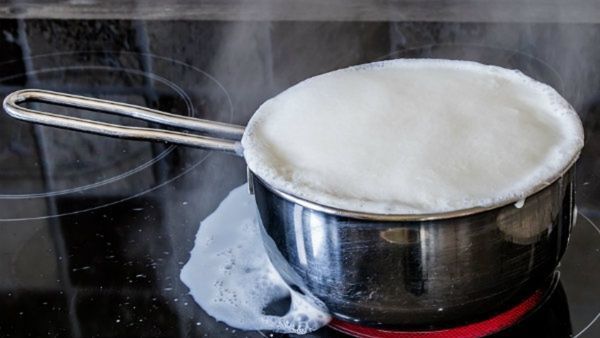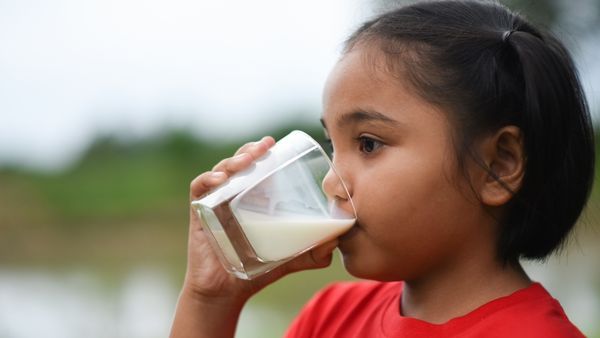Just In
- 6 hrs ago

- 9 hrs ago

- 9 hrs ago

- 13 hrs ago

Don't Miss
- Movies
 Ranam OTT Release Date And Platform: When And Where To Watch Vaibhav Reddy Starrer Movie Online
Ranam OTT Release Date And Platform: When And Where To Watch Vaibhav Reddy Starrer Movie Online - Sports
 Who Won Yesterday's IPL Match 32: GT vs DC, IPL 2024 on April 17 - Delhi Capitals Annihilate Gujarat Titans
Who Won Yesterday's IPL Match 32: GT vs DC, IPL 2024 on April 17 - Delhi Capitals Annihilate Gujarat Titans - Finance
 1:2 Stock Split: Record Date On April 24; Buy The Scrip Now To Be Eligible?
1:2 Stock Split: Record Date On April 24; Buy The Scrip Now To Be Eligible? - News
 Delhi Capital's Captain Rishabh Pant Gathers Praise For His Wicketkeeping Skills, Stunning Catch
Delhi Capital's Captain Rishabh Pant Gathers Praise For His Wicketkeeping Skills, Stunning Catch - Education
 SCCL Recruitment 2024; Application process, Selection criteria and more
SCCL Recruitment 2024; Application process, Selection criteria and more - Automobiles
 Mahindra 3XO SUV Latest Teaser Reveals Connected Car Tech: All Details Here
Mahindra 3XO SUV Latest Teaser Reveals Connected Car Tech: All Details Here - Technology
 OnePlus 13 Early Leak Hints at a Revamped Camera Island, and Fast Charging to Remain at 100W
OnePlus 13 Early Leak Hints at a Revamped Camera Island, and Fast Charging to Remain at 100W - Travel
 From Coconut Breaking on Head to Men Dressing as Women: 12 Unique Indian Rituals Explored
From Coconut Breaking on Head to Men Dressing as Women: 12 Unique Indian Rituals Explored
Is Boiled Milk Healthier? Does Boiling Change Its Nutritional Value?
Milk, be it dairy or vegan, has a central spot in everyone's life, and that is a fact. The versatility of milk gives it a special place not just in cooking but in other spaces, such as for beauty and other therapeutic purposes.
The versatility apart, milk is regarded as a complete food comprised of various nutrients and minerals critical for your body. Being rich in calcium, protein, carbohydrates, vitamins, minerals, and fat, milk benefits your body in various ways. Milk can be termed an all-rounder, from helping maintain your body weight to boosting your bone health [1].
As most milk available in stores is pasteurised, heating milk before you drink it isn't typically necessary. If you take a moment a look, in Indian households, milk is rarely consumed without boiling it - an overflowing milk pot being an intro scene in many movies and tv serials can vouch for that. And you may have gotten confused when the American mother in the movie poured the milk straight out of the carton and let her kids drink it. It is nothing but the fact that pasteurised milk does not have to be boiled [2].
So, is boiled milk healthier? Read on.

Is Boiled Milk Healthier?
It is known that boiling raw milk kills harmful bacteria to prevent health issues [3]. But studies and doctors point out that only raw milk needs boiling to remove any possible bacteria, and packaged milk may not need boiling as it is already pasteurised, as aforementioned [4]. However, boiling packaged milk is not a no-no.
There are no harmful effects in boiling the milk (over and again, but it is best to consume it within 2 days of boiling) [5]. Raw milk may harbour E. coli, salmonella, and other harmful bacteria that can harm people with weak immunity, pregnant women, children, and older adults [6].
In this article, we will be talking about pasteurised and raw cow milk.

Boiling raw milk
Drinking raw milk is associated with a reduced risk of childhood asthma, eczema, and allergies, but as raw milk is more natural than processed milk, direct consumption poses certain challenges.
Raw milk, being raw, is termed high in nutrition. However, it contains certain harmful bacteria as well that are most likely to cause serious diseases. Therefore, it has always been a general practice to boil raw milk.
Raw milk, as such, does not contain any bacteria (in healthy cows), and it is during the milking process, transport, or storage that milk gets contaminated with bacteria. Although the risk of falling sick from drinking raw milk is scarce, a milk-borne infection can have serious consequences, especially in individuals with a weak immune system. Therefore, it is recommended not to consume raw milk and only consume it after boiling [7][8].
Boiling pasteurised milk
Currently, the common source of milk is packaged or pasteurized milk. Pasteurization of raw milk leads to an extension in its shelf-life. Pasteurised milk reaches your kitchen having already undergone a ‘boiling' process, where the milk is heated to a high enough temperature, usually 71.7°C, for 15 seconds to kill any harmful pathogens [9].
Therefore, boiling pasteurised milk will not necessarily make it any safer to consume but may have some added health benefits compared to not boiling the milk.

What Are The Health Benefits Of Boiled Milk?
(1) Milk protein intolerance: When milk is boiled, the protein and lactose content changes, making it easier for people with protein allergies to digest the milk [10]. A study points out that out of the 364 proteins in milk, 23 were diminished upon boiling.
(2) Lactose intolerance: Similar to protein reduction, boiling milk reduces the lactose content; that is, boiling converts the lactose into different types of acids and lactulose, a type of sugar that does not get absorbed by the human body [11].
Note: It is important to note that while boiling reduces the protein and lactose content, it may not cause enough change for people with milk protein allergy or lactose intolerance to consume it safely.
(3) Beneficial fats: Boiled milk contains more short-chain and medium-chain fatty acids that benefit your health [12]. Short-chain fatty acids are fatty acids that fuel your gut cells and help improve gut health, and may reduce the risk of colon cancer.
Medium-chain fatty acids are saturated or unsaturated fatty acids that could promote weight loss by reducing body fat, increasing fullness, and may help improve your gut environment [13][14].
(4) Fewer pathogens: One of the other health benefits of boiled milk is that it has slightly fewer pathogens; that is, while pasteurisation of milk reduces the pathogens present in it a little more than boiling, boiling milk can still be an effective way to minimize contamination and reduce your risk of contracting milk-borne diseases [15].

What Are The Downsides Of Boiled Milk?
The one negative side of boiling milk is that it may negatively affect the vitamin content. B vitamins, such as thiamine, riboflavin, niacin, folic acid, B6, and B1 (sensitive to heat), get reduced when boiled [16].
While milk is not the primary source of B vitamins for adults (except riboflavin), it is one of the primary sources of riboflavin in children's diet. So, if milk is your primary protein source, boiling it might cause you to get less protein.
In addition to the slight changes in the nutritional value, boiling can also cause milk to have a different taste and colour due to the Maillard reaction. The Maillard reaction is a chemical reaction between amino acids and reducing sugars that gives browned food its distinctive flavour [17].
Does Boiling Change The Nutritional Value Of Milk?
Studies have pointed out that regular pasteurisation temperatures did not change nutrient content much, but ultra-high-temperature (UHT) pasteurisation (135-150°C) can affect the nutritional content of milk [18]. Boiling also reduces the two primary proteins, casein and whey, and the fat content.

How To Boil Milk, The Right Way?
1. Avoid boiling or heating the milk frequently since it will affect the nutrient richness.
2. While the milk is being boiled, it is a good idea to keep stirring it occasionally.
3. Boil or heat the milk at a low temperature since high temperatures might adversely affect it.
4. Once the milk is boiled and cooled, avoid keeping it out for long, and refrigerate it till it may be used again. It will stay for a much longer time.
5. Boil the milk on flame instead of a microwave oven.
These are some of the major ways the nutrient quality of the packaged milk may be maintained even after boiling. This would bring about a balance of well-being and nourishment to the consumer and enhance the taste after being heated.

On A Final...
Burning pasteurised milk is unnecessary, but raw milk should be boiled before consumption to avoid the risk of health issues. One of the primary negatives of boiling milk is that it provides less protein and fewer B vitamins.
-
 healthAmul’s New Protein Product For Gym-Goers And Vegetarians: Know More About ‘Super Milk’
healthAmul’s New Protein Product For Gym-Goers And Vegetarians: Know More About ‘Super Milk’ -
 insyncNational Milk Day 2023: Greetings, Wishes, Messages, Images, WhatsApp And Facebook Status
insyncNational Milk Day 2023: Greetings, Wishes, Messages, Images, WhatsApp And Facebook Status -
 insyncNational Milk Day 2023: Date, History, Significance, Theme And Contribution Of Verghese Kurien
insyncNational Milk Day 2023: Date, History, Significance, Theme And Contribution Of Verghese Kurien -
 healthBlack Coffee vs. Milk Coffee: Which Is Better For Weight Loss?
healthBlack Coffee vs. Milk Coffee: Which Is Better For Weight Loss? -
 healthWeight Loss: What Happens When You Drink Coconut Milk Every Day? Can It Help Lose Weight?
healthWeight Loss: What Happens When You Drink Coconut Milk Every Day? Can It Help Lose Weight? -
 pregnancy parentingWorld Breastfeeding Week 2023: What Do You Do If Your Baby Doesn’t Like Breastfeeding?
pregnancy parentingWorld Breastfeeding Week 2023: What Do You Do If Your Baby Doesn’t Like Breastfeeding? -
 pregnancy parentingWorld Breastfeeding Week 2023: 5 Foods To Limit Or Completely Avoid While Breastfeeding
pregnancy parentingWorld Breastfeeding Week 2023: 5 Foods To Limit Or Completely Avoid While Breastfeeding -
 yoga spiritualityHow to Please Lord Shiva in Sawan Month
yoga spiritualityHow to Please Lord Shiva in Sawan Month -
 healthMyths Vs Facts: Don't Borrow Milk After Dark
healthMyths Vs Facts: Don't Borrow Milk After Dark -
 healthMyths vs Facts: Is Milk A Miracle Drink For All Age Groups?
healthMyths vs Facts: Is Milk A Miracle Drink For All Age Groups? -
 healthWhy Does Milk Make You Sleepy?
healthWhy Does Milk Make You Sleepy? -
 wellnessCan Drinking Milk After Eating Fish Cause Skin Diseases?
wellnessCan Drinking Milk After Eating Fish Cause Skin Diseases?


 Click it and Unblock the Notifications
Click it and Unblock the Notifications



